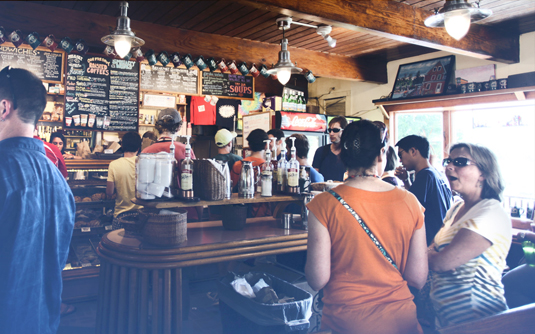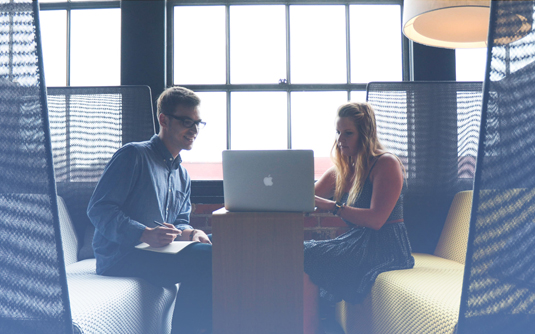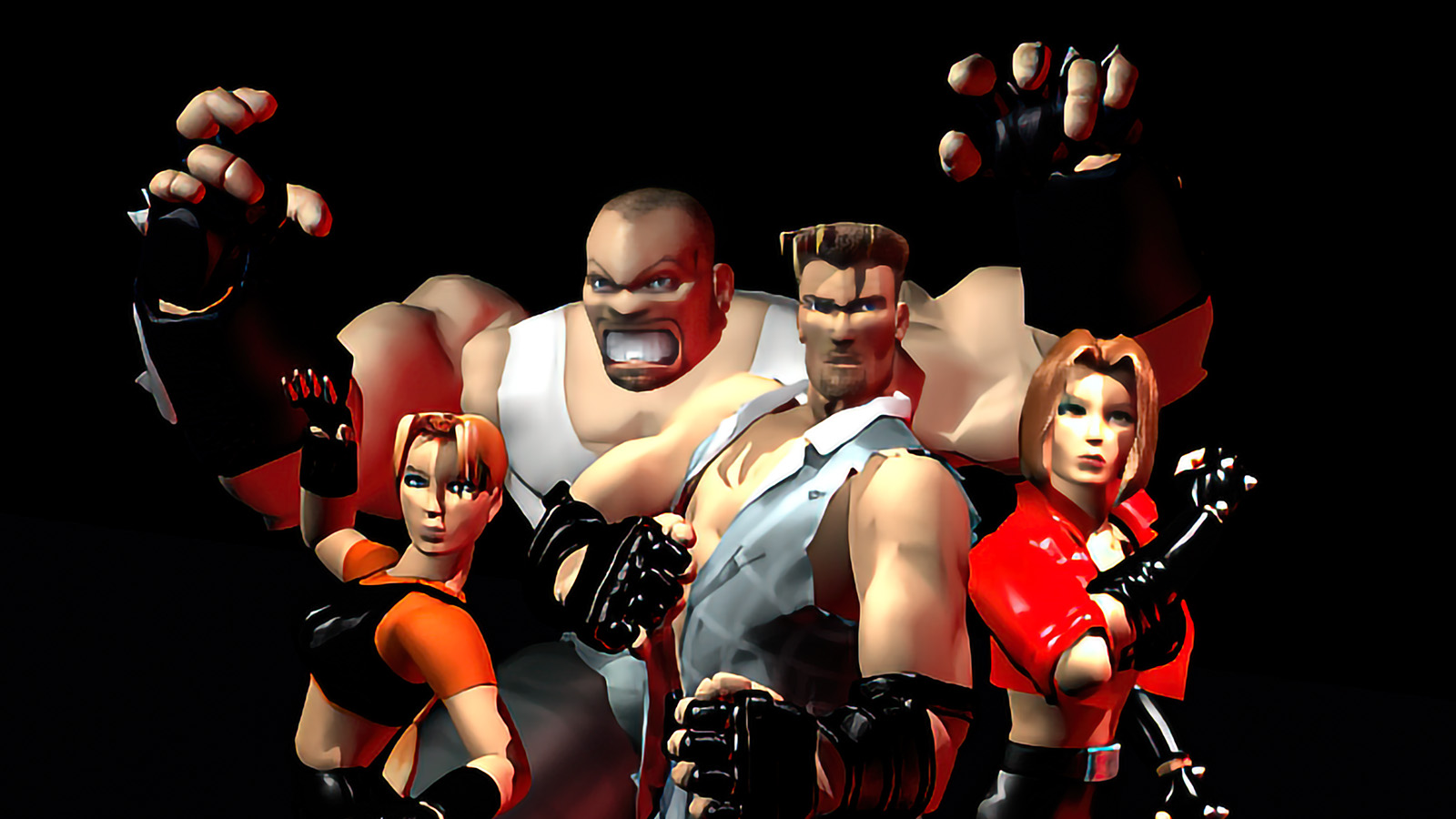7 ways to improve teamwork with design
Tips to boost your design team's productivity and morale.
04. Lunch-and-learns

As software and design continue to solve new problems, we've got an interesting new hurdle: working in areas where we have no idea how things traditionally work. For instance, I spent years building a consumer auto insurance app at a startup, but before that I'd never thought about how my insurance actually worked (let alone the industry behind it).
Until I got my feet under me, I spent a lot of time conversing with our insurance agents and others on my team who knew the space. I'm sure they thought, 'Who is this clueless dude roaming the halls?'
One of my favourite tools is the lunch-and-learn, a quick meetup where team members share knowledge and insight – sort of like a high-level show-and-tell for professionals. At that startup, lunch-and-learns happened sporadically, or when a new team member joined.
The more you learn about the tough decisions your teammates face, the more you can help out when they arise – and the less you'll bother them over small things. Gaining confidence in an industry that used to be foreign to you will definitely show in your design and the decisions you start to make.
05. Pair program (and design)

For a young developer, pair programming is a huge boost and great chance to learn from a more senior member of the team. I'm not sure if pair designing is even a phrase, but dang it's useful.
Exploring your process with a team member (especially a non-designer) makes you really evaluate the choices you might otherwise take for granted. It's also a great way to give a dev or engineer a head start on things in the pipeline. Simply being familiar with a design before it hits their plate can make building things so much easier for a developer.
06. Team social accounts

One of my favourite recent developments on Dribbble is the rise of the team account, a way for folks working on the same thing to share as a group. Beyond that, there's been a general rise of the 'team member' on all social networks, and it's been awesome.
Daily design news, reviews, how-tos and more, as picked by the editors.
There's a bunch of folks I came to know through the brand first, before eventually beginning to recognise the person. 'Oh, hey – it's Andy from Visage' or 'It looks like Phi from Funsize made this'.
The faces and stories behind a product are a big part of the product itself – and sharing them provides insight into your goals and company culture clearer than any marketing copy ever could.
There are some agencies here in Austin that take time to generate design prototypes specifically for social channels, in the form of micro-design explorations created for Dribbble (and to learn, I'm sure). One manager's 'wasted time' is another's 'team-building exercise'.
07. Design critiques

A good designer is not an island. Gathering feedback from your team should be the hallmark of your design process. Painful as it is, having your design picked apart eventually leads to good things.
Do it however you want: call everyone into the conference room, start a new group chat, or email the team. The important part is to share the design and start collecting feedback.
One of my favourite ways to do that involves creating a prototype and inviting the team to leave comments all over the place. Processing feedback in context is a lot easier for me, and threaded comments provide better tracking than endless email back-and-forth.
A side effect of a solid design critique is that non-designers start to nab a stake in the design process. Seeing their contributed ideas take shape gets the whole team excited about a (previously) mysterious process.
Conclusion
Open your process and others will follow. Disappearing into a hole and emerging with a solution isn't teamwork. Opening your design process to anyone interested not only builds a better product, it builds a better team.
As your team grows and you add pieces to the puzzle, who better than a designer to make sure all the pieces fit just right?
For more on how teams can take a proactive approach to better collaboration, don't miss Alison Coward's talk at Generate London on 22 September. The conference will also feature a workshop on design and content sprints, run by Steve Fisher, talks about prototyping at Netflix, how to successfully have a good work/life balance while producing creative work for both, and loads more. Get your ticket today!
Like this? Read these!
